Welcome to My Blog!
Before we dive into the content, I’d love for you to join me on my social media platforms where I share more insights, engage with the community, and post updates. Here’s how you can connect with me:
Facebook: https://www.facebook.com/profile.php?id=100072217509763
LinkedIn: https://www.linkedin.com/company/74949059/admin/dashboard/
YouTube:https://www.youtube.com/@tractormanufacturer-lc5qz
TikTok: https://www.tiktok.com/@tractormanufacturer
Now, let’s get started on our journey together. I hope you find the content here insightful, engaging, and valuable.
Introduction
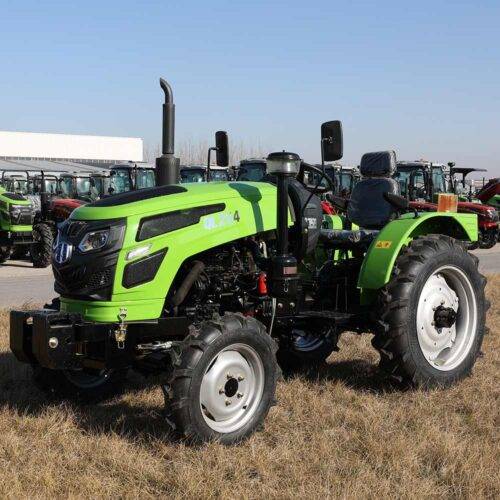
When it comes to agricultural and industrial tasks, tractors play a crucial role in enhancing efficiency and productivity. With a wide variety of tractors available in the market, choosing the right one can be a daunting task. Understanding the different categories of tractors and their specific features, capabilities, and applications is essential to make an informed decision. In this comprehensive blog, we will explore the various categories of tractors, their key characteristics, and how to determine which one best fits your needs. Whether you are a farmer, a contractor, or someone looking to invest in agricultural machinery, this guide will provide valuable insights to help you choose the perfect tractor for your specific requirements.
Categories of Tractors: An Overview
Compact Tractors
Compact tractors are designed for smaller-scale operations and are ideal for tasks that require agility and maneuverability. These tractors are typically used in residential landscaping, small farms, and gardening projects. They are equipped with a range of attachments, such as front-end loaders, backhoes, and mowers, making them versatile tools for various tasks. Compact tractors are known for their ease of use and are often preferred by hobby farmers and homeowners who need a reliable machine for light-duty work.
Subcompact Tractors
Subcompact tractors are even smaller than compact tractors and are designed for very tight spaces. These tractors are perfect for small gardens, narrow pathways, and areas where larger tractors cannot fit. Despite their small size, subcompact tractors are powerful and can handle tasks such as tilling, mowing, and light landscaping. They are also equipped with a variety of attachments, making them highly versatile for small-scale projects.
Utility Tractors
Utility tractors are medium-sized machines designed for a wide range of agricultural and industrial tasks. They are more powerful than compact tractors and offer greater versatility in terms of attachments and applications. Utility tractors are commonly used for plowing, planting, mowing, and towing. They are equipped with features such as power take-off (PTO) shafts, three-point hitches, and hydraulic systems, which allow them to handle a variety of implements and attachments. Utility tractors are ideal for small to medium-sized farms and contractors who require a reliable and versatile machine for multiple tasks.
Agricultural Tractors
Agricultural tractors are specifically designed for large-scale farming operations. These tractors are powerful machines built to handle heavy-duty tasks such as plowing, cultivating, and harvesting. They are equipped with advanced features such as high-horsepower engines, four-wheel drive, and advanced hydraulic systems. Agricultural tractors are available in various sizes and configurations to meet the specific needs of different farming operations. They are often used in combination with large implements and attachments, making them essential tools for commercial farming.
Industrial Tractors
Industrial tractors are designed for heavy-duty industrial applications such as construction, mining, and forestry. These tractors are built to withstand harsh conditions and are equipped with powerful engines, robust transmissions, and heavy-duty attachments. Industrial tractors are often used for tasks such as earthmoving, material handling, and site preparation. They are designed to provide maximum power and durability, making them ideal for demanding industrial environments.
Key Features and Capabilities of Different Categories of Tractors


Compact Tractors: Versatility and Maneuverability
Compact tractors are designed to be highly maneuverable and versatile. They typically have a compact frame and a lower horsepower range compared to larger tractors. This makes them ideal for tasks that require precision and agility, such as landscaping and gardening. Compact tractors are equipped with a range of attachments, including front-end loaders, backhoes, and mowers, which allow them to perform multiple tasks efficiently. They are also relatively easy to operate, making them suitable for beginners and hobbyists.
Subcompact Tractors: Ideal for Tight Spaces
Subcompact tractors are the smallest category of tractors and are designed for tasks that require access to tight spaces. These tractors are perfect for small gardens, narrow pathways, and other areas where larger tractors cannot fit. Despite their small size, subcompact tractors are powerful and can handle tasks such as tilling, mowing, and light landscaping. They are equipped with a variety of attachments, making them highly versatile for small-scale projects. Subcompact tractors are also relatively easy to transport and store, making them a convenient choice for homeowners and small-scale farmers.
Utility Tractors: Power and Versatility
Utility tractors are medium-sized machines designed for a wide range of agricultural and industrial tasks. They offer a balance of power and versatility, making them suitable for small to medium-sized farms and contractors. Utility tractors are equipped with features such as power take-off (PTO) shafts, three-point hitches, and hydraulic systems, which allow them to handle a variety of implements and attachments. They are commonly used for tasks such as plowing, planting, mowing, and towing. Utility tractors are available in various horsepower ranges and configurations to meet the specific needs of different users.
Agricultural Tractors: Built for Heavy-Duty Farming
Agricultural tractors are specifically designed for large-scale farming operations. These tractors are powerful machines built to handle heavy-duty tasks such as plowing, cultivating, and harvesting. They are equipped with advanced features such as high-horsepower engines, four-wheel drive, and advanced hydraulic systems. Agricultural tractors are available in various sizes and configurations to meet the specific needs of different farming operations. They are often used in combination with large implements and attachments, making them essential tools for commercial farming. Agricultural tractors are designed to provide maximum efficiency and productivity, making them a valuable investment for farmers.
Industrial Tractors: Heavy-Duty and Durable
Industrial tractors are designed for heavy-duty industrial applications such as construction, mining, and forestry. These tractors are built to withstand harsh conditions and are equipped with powerful engines, robust transmissions, and heavy-duty attachments. Industrial tractors are often used for tasks such as earthmoving, material handling, and site preparation. They are designed to provide maximum power and durability, making them ideal for demanding industrial environments. Industrial tractors are available in various sizes and configurations to meet the specific needs of different industrial applications.
Choosing the Right Category of Tractor: Factors to Consider
Application Requirements
The specific application for which the tractor will be used is a crucial factor in the selection process. Different categories of tractors are designed for different tasks, so it is important to understand the specific requirements of your project. For example, if you are a small-scale farmer looking to perform light-duty tasks such as mowing and tilling, a compact or subcompact tractor may be sufficient. However, if you are involved in large-scale commercial farming, an agricultural tractor with high horsepower and advanced features may be necessary. Similarly, if you are working in a demanding industrial environment, an industrial tractor with heavy-duty capabilities may be the best choice.
Size and Power Requirements
The size and power of the tractor are also important considerations. Compact and subcompact tractors are smaller and have lower horsepower ranges, making them suitable for light-duty tasks and tight spaces. Utility tractors offer a balance of power and versatility, making them suitable for a wide range of tasks. Agricultural tractors are larger and more powerful, designed to handle heavy-duty farming operations. Industrial tractors are the most powerful and durable, built to withstand harsh industrial conditions. When choosing a tractor, consider the size and power requirements of your specific tasks to ensure that you select a machine that can handle the job efficiently.
Attachments and Implement Compatibility
The availability and compatibility of attachments and implements are also important factors to consider when choosing a tractor. Different categories of tractors are designed to work with specific types of attachments and implements. For example, compact and subcompact tractors are often equipped with front-end loaders, backhoes, and mowers, making them suitable for landscaping and gardening tasks. Utility tractors are designed to work with a wide range of implements, such as plows, planters, and mowers, making them versatile tools for agricultural and industrial tasks.
Agricultural tractors are designed to work with large implements and attachments, such as combines and cultivators, making them essential tools for commercial farming. Industrial tractors are designed to work with heavy-duty attachments, such as buckets and grapples, making them suitable for construction and forestry applications. When choosing a tractor, consider the specific attachments and implements you will need to ensure compatibility and maximize the tractor’s versatility.
Ease of Use and Operator Comfort
The ease of use and operator comfort are also important considerations when choosing a tractor. Compact and subcompact tractors are generally easier to operate and are suitable for beginners and hobbyists. They often have simpler controls and are designed for tasks that require precision and agility. Utility tractors offer a balance of ease of use and advanced features, making them suitable for a wide range of users.
Agricultural tractors are designed for heavy-duty tasks and often have more advanced controls and features, requiring a higher level of operator skill. Industrial tractors are designed for demanding industrial environments and often have robust controls and features, requiring a high level of operator expertise. When choosing a tractor, consider the ease of use and operator comfort to ensure that the machine is suitable for your skill level and intended use.
Budget and Cost Considerations
While budget should not be the sole determining factor in choosing a tractor, it is an important consideration. Different categories of tractors have different price ranges based on their size, power, and features. Compact and subcompact tractors are generally more affordable and are suitable for small-scale operations and hobbyists. Utility tractors offer a balance of affordability and versatility, making them suitable for small to medium-sized farms and contractors.
Agricultural tractors are more expensive due to their advanced features and heavy-duty capabilities, making them a significant investment for commercial farmers. Industrial tractors are the most expensive due to their robust design and heavy-duty applications, making them a valuable investment for industrial users. When choosing a tractor, consider your budget and the long-term cost implications, such as maintenance and fuel costs, to ensure that you select a machine that fits within your financial constraints.
Comparison Table of Categories of Tractors
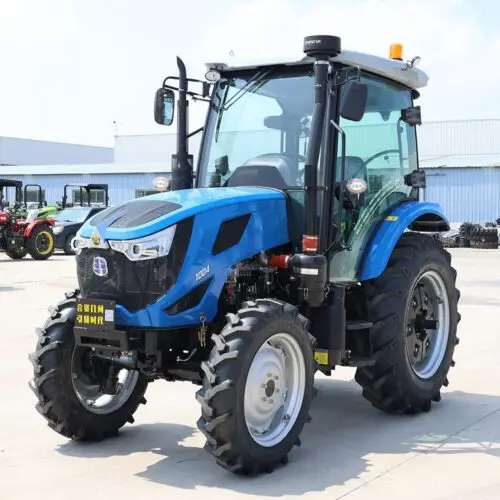
| Category of Tractor | Size | Horsepower Range | Key Features | Typical Applications | Attachments and Implements |
|---|---|---|---|---|---|
| Compact Tractor | Small | 15-50 HP | Maneuverable, versatile, easy to use | Residential landscaping, small farms, gardening | Front-end loaders, backhoes, mowers |
| Subcompact Tractor | Very Small | 10-25 HP | Highly maneuverable, compact | Small gardens, narrow pathways | Tilling attachments, mowers, small loaders |
| Utility Tractor | Medium | 40-100 HP | Versatile, PTO shafts, three-point hitches, hydraulic systems | Small to medium-sized farms, landscaping, construction | Plows, planters, mowers, trailers |
| Agricultural Tractor | Large | 100-300 HP | High horsepower, four-wheel drive, advanced hydraulics | Large-scale farming, commercial agriculture | Combines, cultivators, large planters |
| Industrial Tractor | Large | 150-500 HP | Heavy-duty, robust, powerful | Construction, mining, forestry | Earthmoving buckets, grapples, material handlers |
Conclusion
Choosing the right category of tractor is essential for ensuring efficiency, productivity, and cost-effectiveness in your agricultural or industrial operations. By understanding the different categories of tractors and their specific features, capabilities, and applications, you can make an informed decision that meets your specific needs. Compact and subcompact tractors are ideal for small-scale operations and tight spaces, offering versatility and maneuverability. Utility tractors provide a balance of power and versatility, making them suitable for a wide range of tasks. Agricultural tractors are designed for large-scale farming operations, offering high horsepower and advanced features.
Industrial tractors are built for heavy-duty industrial applications, providing maximum power and durability. When choosing a tractor, consider factors such as application requirements, size and power requirements, attachments and implement compatibility, ease of use and operator comfort, and budget and cost considerations.
FAQ
What are the main categories of tractors?
The main categories of tractors include compact tractors, subcompact tractors, utility tractors, agricultural tractors, and industrial tractors. Each category is designed for specific applications and tasks, ranging from small-scale gardening to large-scale commercial farming and heavy-duty industrial operations.
How do I choose the right category of tractor for my needs?
Choosing the right category of tractor depends on several factors, including your specific application requirements, size and power needs, attachments and implement compatibility, ease of use and operator comfort, and budget. By carefully evaluating these factors, you can determine which category of tractor best fits your needs.
What are compact tractors best suited for?
Compact tractors are best suited for small-scale operations such as residential landscaping, small farms, and gardening projects. They are highly maneuverable and versatile, making them ideal for tasks that require precision and agility. Compact tractors are equipped with a range of attachments, such as front-end loaders, backhoes, and mowers, which allow them to perform multiple tasks efficiently.
What are the advantages of subcompact tractors?
Subcompact tractors are the smallest category of tractors and are designed for tasks that require access to tight spaces. They are highly maneuverable and can handle tasks such as tilling, mowing, and light landscaping. Subcompact tractors are also relatively easy to transport and store, making them a convenient choice for homeowners and small-scale farmers.
What are utility tractors used for?
Utility tractors are medium-sized machines designed for a wide range of agricultural and industrial tasks. They offer a balance of power and versatility, making them suitable for small to medium-sized farms and contractors. Utility tractors are equipped with features such as power take-off (PTO) shafts, three-point hitches, and hydraulic systems, which allow them to handle a variety of implements and attachments. They are commonly used for tasks such as plowing, planting, mowing, and towing.

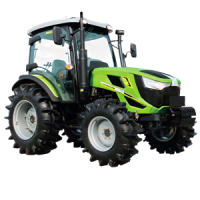
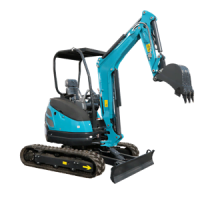
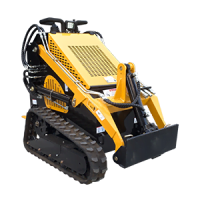
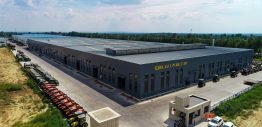
-1.png)